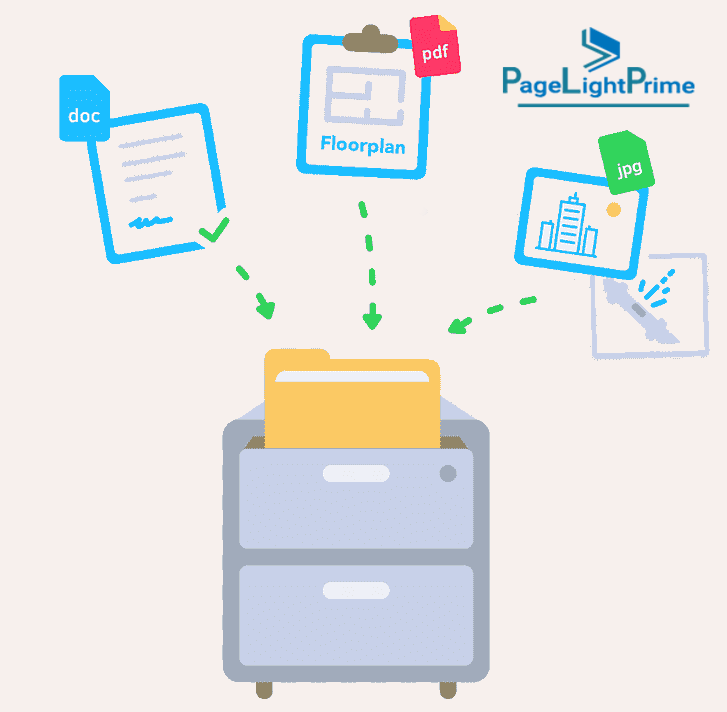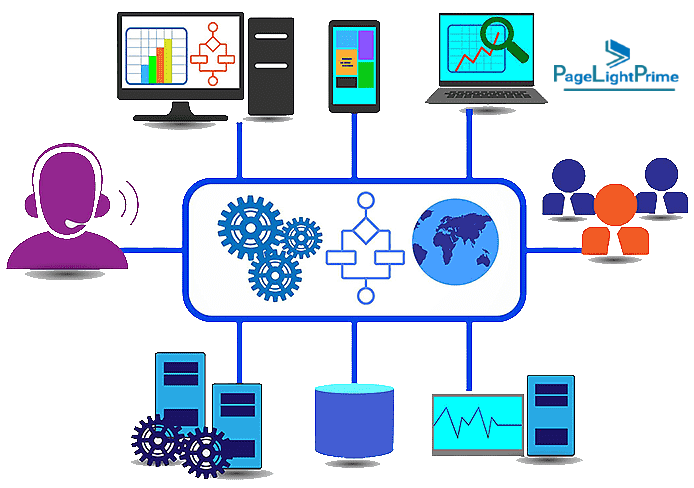Case Studies of Successful Legal Document Automation Implementation in Law Firms
In today’s legal landscape, efficiency and accuracy are crucial. That’s where document automation comes in. This transformative technology has streamlined workflows, reduced errors, and enhanced overall productivity for law firms.
Our latest blog explores real-world case studies of law firms across different practice areas, including Corporate Law, Estate Planning, Immigration, and Litigation, that have successfully implemented document automation. By shedding light on the challenges they faced and the significant benefits they reaped, we hope to inspire other firms to consider implementing legal document automation software.
Written by Knowledge Team, posted on March 04, 2024

Case Study 1: Corporate Law Excellence – Enhancing Client Services Through Automation
Confronted with the task of handling a significant volume of repetitive documentation for their clients, a mid-sized corporate law firm encountered challenges. By implementing document automation software, the firm optimized the creation process for contracts, agreements, and legal briefs. Overcoming obstacles such as initial resistance from staff accustomed to traditional methods and the necessity for a smooth integration process became pivotal in this endeavor.
Implementation Process:
- Identified repetitive document types: Corporate Law Excellence conducted a thorough analysis of their document types to identify those that were frequently used and had a standard structure.
- Collaborative customization: The firm worked closely with the document automation software provider to customize templates based on their specific needs, ensuring accuracy and compliance.
- Training and Change Management: Comprehensive training programs were implemented to help staff transition smoothly to the new system. Change management strategies were employed to address initial resistance and ensure a positive reception.
Benefits:
- Time Savings: Automation significantly reduced the time spent on document creation, allowing lawyers to focus on more complex legal tasks and providing quicker turnaround times for clients.
- Error Reduction: Automated templates minimized the risk of errors in document preparation, enhancing the overall accuracy of legal work.
- Improved Client Satisfaction: With faster and error-free document delivery, Corporate Law Excellence experienced increased client satisfaction and loyalty.

Case Study 2: Litigation Mastery – Navigating Complex Litigation with Automation
An international law firm with a specialization in litigation encountered difficulties in managing the extensive information associated with complex cases. To address this challenge, the firm turned to document automation, providing a solution to streamline the creation of legal documents. This implementation ensured consistency and accuracy throughout the often-prolonged litigation processes.
Implementation Process:
- Integration with existing systems: Litigation Mastery integrated document automation seamlessly with their existing case management and document storage systems, ensuring a cohesive workflow.
- Customization for litigation needs: The firm collaborated with the software provider to customize templates specifically tailored to the unique requirements of complex litigation cases.
- Training and Adoption: Specialized training programs were implemented to equip lawyers and support staff with the skills needed to effectively utilize the new document automation tools.
Benefits:
- Consistency in Documentation: Automated templates ensured consistency in legal documents, reducing the risk of discrepancies and improving the overall quality of work.
- Enhanced Collaboration: The integration of document automation with existing systems promoted better collaboration among legal teams working on complex cases.
- Cost Savings: By streamlining processes and reducing the time spent on manual document creation, Litigation Mastery realized significant cost savings in terms of billable hours.

Case Study 3: Legacy Legal Advisors – Simplifying Estate Planning with Automation
A boutique legal practice that specializes in estate planning acknowledged the necessity for increased efficiency in handling various critical documents within their practice. The implementation of document automation played a crucial role in simplifying the process of creating wills, trusts, and other essential estate planning documents.
Implementation Process:
- Template Development: Legacy Legal Advisors worked closely with their software provider to develop templates for a range of estate planning documents, considering the diverse needs of their clients.
- Seamless Integration: The new document automation system seamlessly integrated with existing case management software, ensuring a smooth workflow for attorneys and support staff.
- Training and Client Education: In addition to internal training, Legacy Legal Advisors provided educational materials to clients on the benefits of document automation, fostering transparency and trust.
Benefits:
- Time Efficiency: The firm experienced a notable reduction in the time required to generate complex estate planning documents, allowing attorneys to devote more time to personalized client consultations.
- Accuracy and Compliance: Automated templates ensured that documents complied with the latest legal requirements, minimizing the risk of errors in critical estate planning matters.
- Enhanced Client Engagement: Clients appreciated the streamlined process and faster turnaround, contributing to heightened satisfaction and positive referrals.

Case Study 4: Immigration Solutions Law Group – Streamlining Immigration Processes with Automation
Lawyers specializing in immigration matters, particularly those related to employment visas, asylum cases, and deportation proceedings, encountered the difficulty of handling a multitude of forms and documentation associated with diverse immigration processes. The implementation of document automation emerged as a solution to efficiently streamline the preparation of visa applications, petitions, and supporting documents.
Implementation Process:
- Comprehensive Template Development: The firm collaborated with their document automation software provider to create comprehensive templates for different types of immigration documents, ensuring accuracy and adherence to immigration regulations.
- Integration with Government Platforms: Immigration Solutions Law Group integrated the document automation system with government platforms to facilitate the seamless submission of standardized immigration documents.
- Staff Training and Compliance: Specialized training programs were implemented to train staff on the use of automated templates, emphasizing compliance with constantly evolving immigration laws and regulations.
Benefits:
- Increased Efficiency: The automation of immigration document preparation significantly reduced the time required for filing, allowing the firm to handle a higher volume of cases.
- Error Mitigation: Automated templates reduced the risk of errors in immigration documentation, ensuring accuracy in complex and stringent processes.
- Client Satisfaction: Faster processing times and reduced administrative burdens led to increased client satisfaction and positive feedback.

Conclusion
These case studies highlight the transformative power of document automation in legal practice across various specialties, including Corporate Law, Litigation, Estate Planning, and Immigration. Law firms, irrespective of their size or practice area, can benefit from adopting these technologies to streamline workflows, reduce errors, and ultimately enhance client services. As the legal industry continues to embrace innovation, successful implementations of document automation serve as inspiring examples for others to follow suit.
